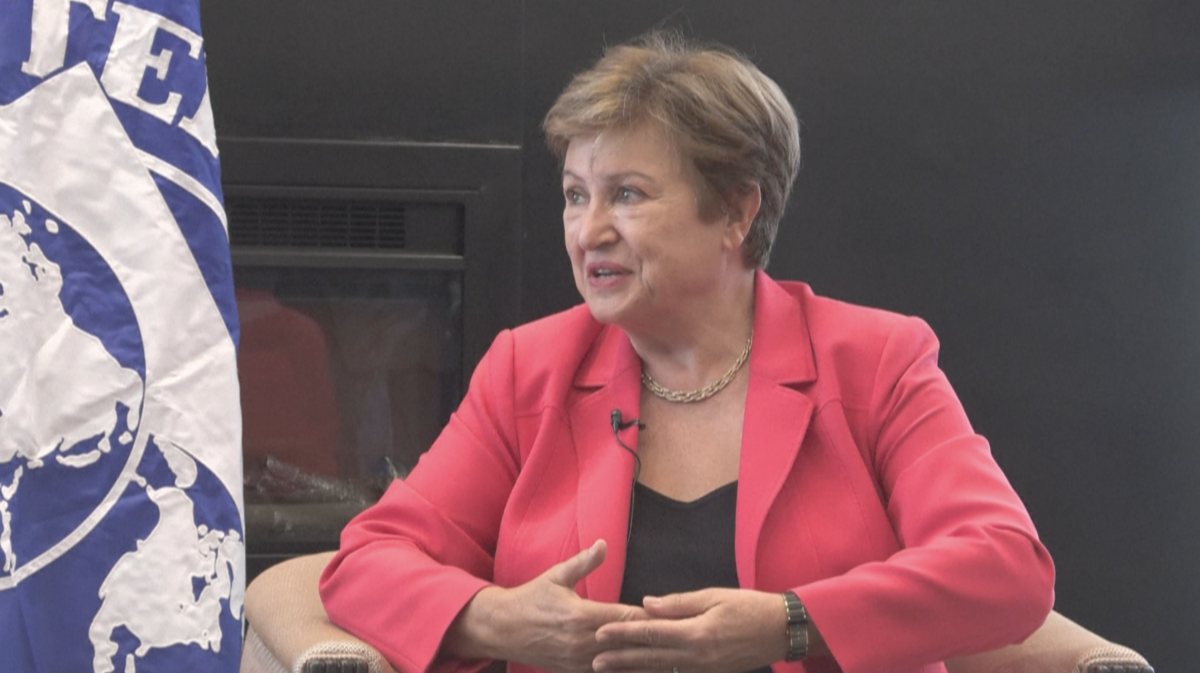
Ethiopia’s economic reforms are “tough” but will bring “tremendous rewards”, says International Monetary Fund (IMF) head Kristalina Georgieva on a visit to the country. The East African giant of some 120 million people has made a number of liberalizing reforms in recent months in a bid to attract investors. (Screen grab from AFP)
Addis Ababa, Ethiopia — Ethiopia’s economic reforms are “tough” but will bring “tremendous rewards”, said International Monetary Fund (IMF) head Kristalina Georgieva on a visit to the country Sunday.
The East African giant of some 120 million people has made a number of liberalizing reforms in recent months in a bid to attract investors.
Though the economy is still largely state-controlled, Ethiopia launched its first stock exchange last month.
READ: Ethiopia to open stock exchange in drive for investors
And last July, it removed controls on its currency, the birr, that had pegged its value to the dollar.
That has caused the birr’s value to fall by around 125 percent, but supporting the old rate was draining the country’s finances, and the IMF made the reform a condition of unlocking a $3.4-billion aid program.
“The reform program that Ethiopia has embraced is tough, it takes time, but it will bring tremendous rewards,” Georgieva said at a press conference in Addis Ababa.
She said GDP growth was 8.1 percent in 2024, much higher than a previous estimate of 6.1 percent, thanks to the “freeing up of space for private initiative.”
Prime Minister Abiy Ahmed has been a strong advocate of economic reform since taking power in 2018.
But his plans were undermined by the impact of the Covid-19 pandemic and the war in Ukraine, as well as a devastating civil war in Ethiopia’s northern region of Tigray that is estimated to have cost some $20 billion.
Inflation hit 33.9 percent in 2022 but fell to 23.9 percent last year and is expected to drop to 13.3 percent in 2026.
“Inflation is going down and that is particularly important for the people in Ethiopia that find themselves struggling with high prices,” said Georgieva.
Ethiopia has been negotiating for several years with creditors to restructure its debt, and partially defaulted in late 2023.
Georgieva said they were in “the final stretch” of those negotiations.
Speaking alongside her, Ethiopian Finance Minister Ahmed Shide said: “We firmly believe that our ongoing reform program will ultimately bring significant benefits to our people and create opportunities,” including job creation.